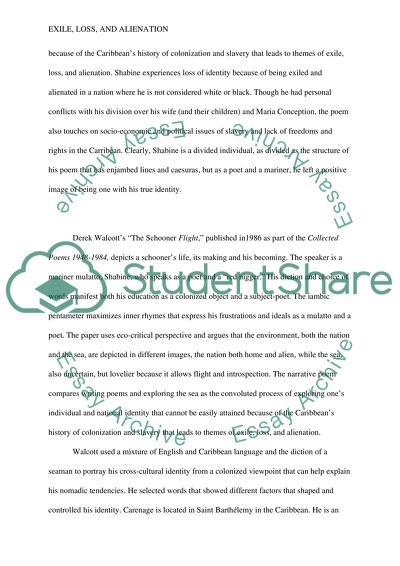Cite this document
(“Exile, loss, and alienation in Walcotts The Schooner Flight Essay”, n.d.)
Retrieved de https://studentshare.org/english/1495139-exile-loss-and-alienation-in-walcotts-the-schooner-flight
Retrieved de https://studentshare.org/english/1495139-exile-loss-and-alienation-in-walcotts-the-schooner-flight
(Exile, Loss, and Alienation in Walcotts The Schooner Flight Essay)
https://studentshare.org/english/1495139-exile-loss-and-alienation-in-walcotts-the-schooner-flight.
https://studentshare.org/english/1495139-exile-loss-and-alienation-in-walcotts-the-schooner-flight.
“Exile, Loss, and Alienation in Walcotts The Schooner Flight Essay”, n.d. https://studentshare.org/english/1495139-exile-loss-and-alienation-in-walcotts-the-schooner-flight.


